
Inédit en français !
Guillaume Faye
UN REGARD FRANÇAIS SUR LA RUSSIE
À Irina Ermakova
INTRODUCTION
Si j’aime la Russie, c’est peut-être parce que, dans toute mon éducation qui fut pourtant imprégnée de nationalisme français bonapartiste, on m’a toujours appris que la culture russe – littérature, peinture, musique, sciences – était incontournable. Pour moi l’image de la Russie était celle d’un immense pays, lointain, mais néanmoins très proche. J’étais définitivement russophile, comme un russe peut être francophile, bien que ni l’un ni l’autre ne connaissent jamais très bien la nature profonde de ceux qu’ils aiment.
Pourquoi est-il important pour moi de m’intéresser à la Russie ? Parce qu’elle est un des piliers centraux de la civilisation européenne et des Blancs, au sens planétaire. Après les nombreux livres que j’ai publiés, dont plusieurs ont été traduits en russe et à la suite des conférences où je fus invité à Moscou et St.Petersbourg, le Pr. Pavel Tulaev m’a demandé d’exprimer quel regard je portais sur la Russie. Mais aussi, avec lui, plusieurs amis russes, après la publication en France de mon livre Mon Programme (qui est un programme politique idéal pour la France et l’Union européenne) m’ont demandé : ”quel serait ton programme pour la Russie ? ” Si par exemple « tu devenais notre Tzar », me dit en plaisantant la pianiste Irina Ermakova.
Je ne pense pas que les Tzars règneront de nouveau sur la Russie – mais sait-on jamais ? – ni que les Russes accepteraient comme dirigeant un Français qui ne parle pas leur langue. Mais enfin, j’ai réfléchi, beaucoup plus modestement, aux analyses et aux conseils que je pourrais donner aux dirigeants russes s’ils m’en faisaient la demande. Mon point de vue extérieur de Français ami de la Russie, complètement en dehors des luttes internes russes, donc empreint d’une certaine objectivité distante, pourra peut-être vous intéresser.
Mais avant d’aborder les grandes lignes d’un programme pour la Fédération de Russie, permettez-moi de commencer par une analyse de votre cher pays et de votre grand peuple. Un certain nombre de choses pourront vous choquer ou vous déplaire légèrement, mais je déteste mentir. Mon regard n’est qu’impression et non point vérité, car cette dernière est hors de portés des hommes lucides.
I. IMAGES DE LA RUSSIE VUES DE FRANCE
À vingt ans, j’avais lu tout Dostoievski, tout Tolstoï, tout Tchékov et, je dois l’avouer, pas une seule ligne de la littérature américaine. On m’avait présentée cette dernière comme « vulgaire », « grossière », ce qui est d’ailleurs très exagéré. « Rien à voir avec l’âme russe ». L’expression d’ « âme russe » est une expression très française qui date du XIXe siècle. Elle sous-entend que la Russie à une profondeur métaphysique et romantique, une dimension tragique, dont notre culture française serait dépourvue. Mes parents, qui étaient des anti-communistes convaincus, allaient curieusement souvent en Union soviétique pour visiter les musées et aller aux concerts. Il ne leur serait jamais venus à l’idée d’aller à New-York ou à Los Angeles, parce qu’ils pensaient que là-bas, il n’y avait pas de « culture » digne de ce nom. De « haute culture », s’entend.
Il y aurait dans les paysages, les regards, les romans et le cinéma russes une mélancolie et une profondeur, triste ou exaltée, très éloignées de la légèreté française. La culture russe serait une culture allemande en plus tragique encore. Une culture véritablement ”continentale”. Quant à la culture américaine, elle serait mercantile, racoleuse, superficielle comme ses séries télévisées.
Mais en même temps, les cultures russe et allemande seraient, bien que profondes, « lourdes » et quelque peu « ennuyeuses »...
Bien entendu, tout cela ne rassemble que des clichés, empreints d’énormes erreurs, mais il est intéressant de le mentionner d’un point de vue sociologique. Les préjugés font, par exemple, qu’on n’enseigne pas en France la philosophie russe dans les programmes.
Vue d’un point de vue français traditionnel, enraciné dans la longue histoire de mon pays, la Russie apparaît de prime abord comme une planète extrêmement différente. La Russie, et l’ensemble des territoires immenses qu’elle a conquis jusqu’au Pacifique, est un énorme espace territorial, principalement continental, où il faut parcourir des milliers de kilomètres pour changer de climat ou de paysages, où les conditions de vie sont rudes, où la nature n’est pas hospitalière. L’inverse même de l’Hexagone français où tout change en cent kilomètres et où la nature offre des conditions de vie faciles.
***
Dans les milieux gaullistes, en France, (contrairement aux USA), l’idée d’ ”Union soviétique” n’était pas prise au sérieux. On ne parlait que de Russie ou d’Empire russe. Le communisme soviétique était considéré comme un simple régime passager. Le danger communiste était représenté par le Parti communiste français et ses affidés qui infiltrent tous les syndicats et l’Éducation nationale. L’idée même de « menace soviétique », incarnée par le Pacte de Varsovie, faisait sourire. Contrairement aux Américains, aux Anglais, aux Allemands, les milieux gaullistes n’ont jamais cru à une attaque soviétique. D’ailleurs, De Gaulle avait retiré la France de l’OTAN et avait construit la force nucléaire française selon la doctrine de « défense tous azimuts », c’est-à-dire contre tout agresseur d’où qu’il vienne.
Contrairement à l’Allemagne, les Français n’ont jamais perçu la Russie comme une menace. Il n’y a pas de russophobie en France, alors qu’il existe, notamment dans la classe politique un anti-américanisme récurrent et vivace ( ce qui est contradictoire avec l’américanisation culturelle et la fuite des cerveaux aux USA). Même durant la guerre froide, quand on parlait de « menace soviétique », les Français étaient les seuls Européens à ne pas y croire. Et l’histoire leur a donné raison : puisque l’OTAN, qui était censé n’avoir pour seule utilité que de défendre l’Ouest contre le Pacte de Varsovie n’a jamais été aussi actif que depuis que ce dernier n’existe plus...
L’inféodation du Parti communiste français à Moscou (surnommé alors par les anti-communistes « l’œil de Moscou ») n’a jamais beaucoup gêné les gouvernements français. Les analystes français (voir Hélène Carrère d’Encausse) étaient les seuls en Occident à prédire la fin prochaine du communisme soviétique, du fait de ses propres faiblesses intérieures ; alors que les Américains surestimaient et la puissance et la stabilité de l’URSS, afin de maintenir l’Europe sous leur dépendance ”protectrice”. Dans les milieux gaullistes, on ne croyait pas à la pérennité de l’Union soviétique et l’on parlait de « Russie », jamais d’ « URSS ».
Lorsque l’Union soviétique s’est effondrée, cela a ressemblé à la chute de l’Empire Otoman. La Turquie s’est extraite de l’Empire Ottoman comme la Russie s’est extraite de l’Union soviétique. En dépit de ses énormes inconvénients, le régime communiste a fonctionné comme une barrière qui a préservé la Russie par exemple de l’immigration de masse afro-asiatique que subit l’Occident et qui est en train de défigurer l’Union européenne. Elle l’a préservée aussi de l’influence des idéologies occidentales décadentistes et des modes, mœurs, traits culturels et mentalités pathologiques qui en découlent et qui relèvent de l’inversion des valeurs. Malheureusement – j’y reviendrai plus bas – le peuple russe n’est plus aujourd’hui protégé contre cette influence délétère.
L’opinion française aujourd’hui s’intéresse beaucoup à la Russie, beaucoup plus que du temps de l’URSS. Par exemple, le premier quotidien national Le Figaro publie chaque mois un supplément gratuit, La Russie Aujourd’hui uniquement consacré aux analyses et événements politiques, économiques, culturels, scientifiques russes. Aucun autre pays, à part les Etats-Unis, ne bénéficie d’une telle curiosité.
***
Le régime instauré par Vladimir Poutine suscite l’enthousiasme dans les milieux identitaires et nationalistes de l’Europe de l’Ouest, surtout en France. Évidemment, la plupart des gens qui applaudissent ainsi M. Poutine ne connaissent absolument pas la Russie. Mais le fait que le régime de votre Président suscite tant de haine dans les médias occidentaux force, par contrecoup, les nationalistes européens à le considérer comme une sorte de dieu, de sauveur. Ce qui est évidemment exagéré.
Les médias de gauche bien-pensants en France, soit 80%, considèrent implicitement ou explicitement la Russie comme un pays « non-démocratique » et Vladimit Poutine comme un autocrate insensible et cynique entouré d’une clique brutale et corrompue. Le plus extraordinaire c’est que ce jugement est porté par des intellectuels et des politiciens européens qui bafouent tous les jours la démocratie en construisant une Union européenne purement technocratique aux mains de « commissaires » non-élus et en imposant aux populations autochtones des mesures contraires à leurs intérêt et à leur souveraineté.
Vis-à-vis du régime actuel russe, depuis que M. Poutine l’a pris en main, on observe en France deux opinions contradictoires : la première, issue de la gauche et distillée dans de nombreux médias, présente le régime russe comme non-démocratique, autoritariste, irrespectueux des Droits de l’Homme. Comme une sorte d’héritier en basse intesité du régime soviétique. Cette position est d’autant plus curieuse qu’elle provient d’intellectuels qui étaient jadis affiliés au communisme et qui, avec le PCF, soutenaient le régime soviétique comme le plus ”démocratique” du monde, adoraient le Cuba de Fidel Castro, la Chine du tyran Mao, le Cambodge de Pol Pot ou l’Albanie d’Henver Hojda.
La seconde opinion, qui provient de la droite (selon les catégories françaises), présente au contraire M. Poutine comme un modèle parfait. Un bon exemple de restauration de l’autorité de l’État et de sain nationalisme, bien éloigné de la mollesse et du laxisme des gouvernants de l’Union européenne.
Ces deux positions sont évidemment exagérées. M. Poutine n’est ni le Diable ni le Sauveur. Néanmoins, les grands médias français européens et occidentaux, qui se veulent les défenseurs des Droits de l’Homme, du pluralisme et de la liberté d’expression, ont une très mauvaise opinion du régime russe. L’opposition y est présentée comme fantoche et manipulée, la presse et les médias comme soumis au pouvoir, les journalistes libres comme persécutés, les élections comme truquées, etc. Ceux qui profèrent ces opinions oublient qu’en Europe de l’Ouest règne une idéologie dominante néo-totalitaire qui criminalise ou marginalise toute opinion dissidente. À Paris, j’ai été poursuivi et condamné en justice pour deux de mes livres, parce que je critiquais l’immigration allogène et l’islamisation de la société. La justice de mon prople peuple me condamnait parce que je le défendais ! Cela ne m’a pas fait pleurer, plutôt rire. Pourtant, quand je parle à Moscou, il y a des choses que je puis dire librement, mais pas à Paris !
***
Le Russe est perçue en France sous un double aspect, et cela n’a beaucoup changé depuis les observations du marquis de Custine. Pour faire simple, et au risque de choquer mes lecteurs russes : une élite exceptionnellement intelligente, douée pour les sciences et les arts, et une masse abrutie, alcoolisée, primitive. Ce cliché grossier perdure dans les esprits et il correspond exactement à ce qu’on pensait du temps des Tzars.
J’ai rencontré dans la bourgeoisie russe, la bonne société moscovite, des Russes méprisants qui n’étaient pas loin de penser la même chose. J’ajoute que mes compatriotes français ont l’art de classer les nations en catégories et de les juger selon des schémas simples. Les Américains, par exemple, sont jugés exactement comme les Russes : une élite remarquable et un peuple inculte. Mes compatriotes ont cette étrange propension à s’estimer implicitement un peuple supérieur à tous les autres, ce qui est contradictoire avec le fait que les Français sont les plus pessimistes du monde sur leur propre avenir.
II. LA DOUBLE ÂME RUSSE OU L’AIGLE BICÉPHALE
L’idée que je propose d’ une certaine schizophrénie russe n’est pas du tout péjorative envers le peuple russe, elle est seulement descriptive. Et bien entendu, ce n’est qu’une intuition qui n’a rien de scientifique. Examinons rationnellement cette hypothèse. L’âme double, contradictoire, de la Russie se manifeste dans plusieurs domaines, qui dépendent tous les uns des autres. De la géopolitique à la psychologie.
Tout d’abord, le partage entre l’Europe et l’Asie, au dessus de l’Oural. Les Russes sont-ils Européens ou Sibériens et Asiatiques ? Ensuite, on peut noter le conflit entre la volonté de puissance impériale russe et le sentiment de ne pas être vraiment une grande puissance. Le sentiment russe de grandeur a été blessé par les amputations réalisées à la suite de la chute de l’URSS. La fin de cette dernière a été vécue comme une dramatique perte de puissance. Et d’ailleurs M. Poutine n’a-t-il pas déclaré qu’il s’était agi d’une catastrophe géopolitique ? Ce qui fait qu’aujourd’hui la mentalité russe me semble partagée entre un complexe de supériorité et un complexe d’infériorité.
L’immensité du territoire de la Fédération de Russie a donné aux Russes une perception de la nation et de la politique très différente des autres Européens. La Russie, du fait de son étendue et de son climat rude, est malaisée à gouverner, comme d’ailleurs à protéger.
D’où un sentiment obsidional, la peur de l’encerclement. Encerclement qui est d’ailleurs un des aspects de la politique de Washington vis à vis de la Russie, en essayant de l’affaiblir à la fois par l’Ouest et par le Sud. Beaucoup de Russes sont partagés entre le sentiment d’appartenir à une grande puissance blessée et en même temps d’être relégués au rang d’un pays sans grande importance, simple exportateur de pétrole et de gaz. D’où un double sentiment de nostalgie et de revanche nationale.
Le sentiment national russe est d’autant plus fort et légitime que l’État russe est un des plus anciens du monde, symbolisé par les dynasties tzaristes, tout comme le Japon, la Chine ou la France. Ce qui n’est pas le cas de l’Allemagne ou de l’Italie ni de la plupart des autres pays du monde. (1)
***
À cheval sur l’Asie et l’Europe (d’où le symbole de l’Aigle bicéphale), la Russie a toujours eu des difficultés à se sentir pleinement européenne. Pourtant elle l’est : la majorité de la population et des activités économiques sont situées à l’ouest de l’Oural. Les ancêtres des Russes étaient des peuples nord-européens et toute l’histoire de la Russie est imbriquée avec celle de l’Europe.
Pour résoudre cette contradiction, j’avais proposé le concept d’Eurosibérie, alliance géostratégique et économique entre l’Europe de l’Ouest, l’Europe centrale et la Fédération de Russie Mon ami le Pr. Pavel Tulaev m’a conseillé de préférer plutôt le concept d’Euro-Russie, conseil que j’ai suivi. En revanche, je trouve très maladroit psychologiquement d’utiliser le terme d’Eurasie. Ce concept n’est pas pertinent, car il suppose une alliance de fond avec les peuples chinois et asiatiques d’Extrême-orient, ce qui relève de la naïveté et de l’angélisme. Ces peuples seront toujours nos adversaires. Ils n’ont aucune connivence ethnique avec nous. Ils ne cherchent qu’à nous dévorer. Notre frontière est sur l’Amour – le fleuve du même nom.
Les Russes sont partagés entre deux sentiments : un nationalisme obsidional de repli sur soi (complexe d’infériorité) et un désir de prouver au monde entier qu’ils sont un grand peuple dominateur (complexe de supériorité). Cette contradiction s’est retrouvée dans la Russie tsariste, sous le régime de l’URSS et dans la Russie post-communiste actuelle.
Une chose m’a étonnée quand j’ai discuté avec plusieurs nationalistes russes, c’est ce leitmotiv : nous n’avons besoin de personne, et surtout pas de l’Europe de l’Ouest. J’ai eu le sentiment d’une surestimation de la force russe, ainsi qu’un désir d’isolement et d’autosuffisance. Mais en même temps, je comprends ce sentiment de rejet de l’Europe de l’Ouest et de l’Occident, compte tenu de l’idéologie mortelle qu’ils diffusent : en particulier les excès des ” Droits de l’Homme”, le cosmopolitisme, la xénophilie, l’islamophilie, le laxisme face à l’immigration de conquête, l’abandon des valeurs de base, c’est-à-dire un décadentisme suicidaire.
***
Le nationalisme est une très bonne chose (bien meilleure que le masochisme national qui frappe les Européens de l’Ouest) mais il devient dangereux quand il empêche de regarder ses propres défauts. Or, les Russes refusent souvent de regarder leurs propres défauts, et donc de les corriger. Ils sont très susceptibles sur leur grandeur nationale, tout comme les Américains et les Chinois d’ailleurs. Et l’effondrement de l’ « Empire soviétique » a créé un sentiment de frustration, celui d’une grandeur passée.
La psychologie russe est partagée entre la mélancolie et l’exubérance, l’abattement et l’exaltation, le découragement et l’enthousiasme, la lucidité et l’aveuglement, le pessimisme excessif et la négligence, le génie scientifique et artistique issu d’un constructivisme admirable, et le laisser-aller.
Mais sans la Russie, la civilisation européenne ne serait pas ce qu’elle est, notamment sur le plan scientifique. Et sans la Russie, la civilisation européenne ne peut pas continuer d’exister. Les Russes sont très fiers de leur passé. Ils ne cultivent pas l’auto-dérision et l’ethnomasochisme comme les Européens de l’Ouest. Ils s’enorgueillissent des apports artistiques, philosophiques, technologiques majeurs de leur peuple à l’ensemble de l’humanité. Dans les milieux que j’ai rencontrés, même si l’on admet que le communisme soviétique fut nuisible, on ne peut s’empêcher d‘éprouver une légitime fierté à l’idée que la Russie fut la première puissance dans la conquête spatiale. À mon sens, ce ne fut nullement du fait du communisme mais de celui du génie russe. Car il existe véritablement un génie russe, des musiciens aux ingénieurs, des peintres aux physiciens, des poètes aux philosophes. Je définirais ce genie russe comme une exceptionnelle capacité intuitive.
La faiblesse du Russe, c’est qu’il est pudique, parfois maladroit ; il se sait pas se vendre. Il ne possède pas cette extraordinaire « vanité brillante » des Français ni cette « naïveté affirmative » des Américains ( les Français et les Américains se complètent très bien). L’orgueil blessé : voilà ce qui frappe dans la mentalité russe d’aujourd’hui. La nostalgie de la « grande puissance soviétique » – même associée à un rejet de l’ère communiste– ou de la période grandiose des Tsars est associée à un complexe d’infériorité vis-à-vis de l’Occident, donc à un désir d’imitation.
L’URSS et le régime soviétique ne furent qu’une parenthèse dans l’histoire de la grande Russie. À l’inverse de la Révolution française, qui fut un énorme volcan, la Révolution d’Octobre fut une toute petite éruption, même à l’échelle mondiale. Plus exactement : la Révolution française (qui fit suite à la Révolution américaine) fut une petite éruption qui laissa d’énormes traces durables, tandis que la Révolution bolchévique fut une énorme éruption, éphémère, et qui laissera peu de traces, ou pas du tout. On ne le savait pas dans les années 60, mais maintenant, on le sait. On le sait, parce que le « Bolchévisme », qui était pourtant regardé en Occident depuis le début du XXe siècle comme un mouvement d’une ampleur sans précédent, qu’on le considérât comme un danger absolu ou un idéal lumineux, était une montagne qui a accouché d’une souris.
Cette remarque permet d’établir un parallèle entre la Russie et la France, mais aussi avec la Chine. Ces trois nations ont connu une révolution sécante, c’est-à-dire qui a coupé leur histoire en deux. La France en 1789, la Russie en 1917, la Chine en 1949. Or, dans le cas de la Chine et de la France, cette révolution a donné lieu à un nouveau régime qui n’a jamais été aboli. Au contraire, en Russie, le nouveau régime a été aboli en 1991. Ce qui donne un avantage à la Russie : en effet, dans la mentalité russe et dans la mémoire de l’État post-communiste, le fil a été renoué avec le passé monarchiste tzariste. Ce qui permet d’associer dans la même continuité historique la Russie des Tzars, la Russie soviétique et la Russie actuelle. D’où la notion vivante de « Russie éternelle ». Sur ce point précis, les Russes ne sont pas schizophrènes !
En France, en revanche, nous sommes schizophrènes : l’idéologie dominante pense implicitement la France comme associée à la ”république” apparue en 1789, en méprisant, en dévalorisant par fanatisme idéologique latent, l’immense période de la royauté sacrée née à Reims pendant laquelle s’est véritablement construite la France. Napoléon a bien essayé de regrouper l’héritage royal et l’héritage révolutionnaire, mais il a échoué ou plutôt à moitié réussi. De sorte qu’aujourd’hui, comme l’a dit Jean Raspail dans un article du Figaro qui a fait scandale, nous avons « la Nation contre la République ». Cela est très grave, parce que, dans la mentalité officielle, l’État français se pense de manière idéologique et non pas ethnique. Comme si la France avait commencé en 1789. Et comme si la « Grande Révolution » était l’acte fondateur symbolique du peuple français, à l’image de la Déclaration d’indépendance américaine. En ce sens, la France s’auto-mutile de son passé et de son identité ethnique, ce qui autorise à penser que n’importe qui peut devenir Français comme n’importe qui peut devenir Américain . Cela explique en partie la folie des élites politiques françaises qui ouvrent le pays à toutes les immigrations invasives et accordent la nationalité à tout le monde, ce qui ne pourra déboucher que sur la disparition pure et simple de la France, par oubli tragique de la notion d’identité ethnique, que Napoléon acceptait parfaitement.
Les Russes, en revanche – comme d’ailleurs les Japonais et les Chinois – ont cette chance de penser leur propre pays comme une nation, comme un ensemble ethnique plus que comme un régime politique. La Russie actuelle n’envisage pas son acte fondateur avec la naissance du régime soviétique. Ce dernier, par un marxisme-lénisisme ou un trotskysme universalistes inspirés par la Révolution française, risquait d’abolir la notion ethnique de « russe » au profit de la notion purement abstraite et idéologique de « soviétique ». Heureusement pour les Russes, ce n’est pas ce qui s’est produit. La notion de patrie, avec sa dimension ethnique et sa continuité historique multiséculaire, est restée la plus forte. En France, malheureusement, la « république », notion abstraite et idéologique, passe avant la « patrie », notion historique, concrète et charnelle.
NOTES.
(1) Officiellement, la France (qui succède à la Gaule) naît comme nation et comme État avec le baptème et le sacre de son premier roi, Clovis (Chlodoveigh, selon la dénomination franque germanique) à Reims, en l’an 496, soit 20 ans après la fin de l’Empire romain d’Occident, donc après la fin de l’Antiquité, selon la chronologie traditionnelle. Pendant treize siècles, tous les Rois de France seront sacrés à Reims, sans discontinuer. En 1996, la République française fut obligée, à regret, d’accepter une modeste célébration des 1.500 ans de la France en tant qu’État. Ce dernier est donc le plus ancien des États-nations européens. Le second plus ancien État-nation européen constitué est la Russie.
III LA SITUATION ACTUELLE DE LA RUSSIE : GULLIVER ENCHAÎNÉ
L’impression que je ressens est que, comme Gulliver enchaîné par les nains pendant son sommeil, la Russie ne profite pas des forces immenses qui sont les siennes et semble trop dépendante de faiblesses qu’elle tarde à corriger. Permettez-moi de brosser une analyse critique de votre pays, certainement imparfaite, mais destinée à vous faire réagir.
***
Tout d’abord, a Russie est-elle en deuil de l’URSS ?
La chute et le démantèlement de l’URSS a surpris et choqué beaucoup de Russes qui ont ressenti comme l’effondrement d’un Empire. Son remplacement par la CEI (la Communauté des États Indépendants) n’était qu’un petit lot de consolation. M. Poutine a qualifié la fin de l’URSS de grande catastrophe. Il est évident que cet événement a choqué le nationalisme et la fierté impériale russes, tout comme la décolonisation avait heurté les sensibilités attachées à l’ « Empire français » et au « British Empire ».
Gorbatchev lui-même, au cours d’une émission diffusée le 20 mai 2012 par la cinquième chaîne publique française, a reconnu qu’il désirait moderniser et démocratiser l’URSS mais certainement pas aboutir à la fin de l’Union soviétique. Au passage, il a violemment fustigé et critiqué Boris Eltsine, le traitant d’arriviste obsédé par le pouvoir personnel ; mais il n’a pas dit un mot sur Vladimir Poutine. Il n’a pas non plus évoqué sa prestation publicitaire pour la marque française de maroquinerie de luxe Vuitton...
L’URSS s’est en fait effondrée d’elle-même et les Russes ont eu beaucoup de chance d’échapper à la guerre civile, au moment du putsh raté de 1991. Mitterrand, alors au pouvoir en France, était lui aussi affolé à l’idée de la fin de l’URSS et de la réunification allemande après la chute du rideau de fer. C’était le seul dirigeant occidental à ne pas souhaiter la disparition du bloc communiste, qui était pour lui un facteur de stabilité et d’équilibre contre la toute-puissance américaine et le retour d’une Allemagne unie.
En réalité, l’Union soviétique était gangrénée de l’intérieur et ne pouvait que disparaître, comme d’ailleurs tout le « système socialiste » qui s’effritait depuis les années 80 et qui ne pouvait pas résister à l’offensive culturelle américano-occidentale ni à l’économie de marché que la Chine elle-même venait d’adopter. Le système des États ”socialistes” fermés était ingérable. Mais la fin du bloc soviétique pouvait aussi être une chance : parce qu’elle signifiait un retour des nations ethniques en Europe. Malheureusement, il n’est pas certain que cette chance ait été saisie.
Ce qui semble le plus incroyable à un Français, c’est que les Russes aient pu maintenir un système communiste si longtemps (70 ans) alors qu’il y avait chez les élites russes beaucoup moins de communistes ou de vrais marxistes qu’en France ! Cela fait partie des paradoxes de l’Histoire.
Au final, la dispartition de l’URSS fut-elle une bonne chose pour la Russie ? Et l’éclatement de l’Empire ottoman fut-il une bonne chose pour la Turquie ? Difficile de répondre à cette question ; une chose est sûre : l’URSS n’était plus viable. La Russie, en effet, aurait eu à gérer le poids de populations allogènes et de peuples-satellites qui auraient posé encore plus de problèmes que n’en posent ceux du Caucase. L’immense superficie actuelle de la Russie est bien suffisante pour lui assurer puissance, influence et prospérité.
**
Abordons maintenant les faiblesses et les forces de la Russie.
En premier lieu, l’état de santé de sa population laisse fortement à désirer, notamment à cause de l’alccolisme. L’espérance de vie y est inférieure à celle de l’Occident, et même à celui de l’ancien régime soviétique ; le système sanitaire n’est pas performant pour la majorité de la population, et souvent même moins bon que celui de l’Union soviétique pour les classes pauvres. L’extrême richesse des millionnaires moscovites et la vitrine de la mégapole de Moscou qui rivalise avec New-York, Paris, Berlin, Londres ou Shanghaï ne parviennent pas à cacher une trop grande pauvreté d’une partie de la population et l’émergence insuffisante d’une classe moyenne aisée. Les campagnes et les petites villes de l’immense territoire de la Fédération de Russie sont toujours dans un état de dénuement impensable pour un pays qui se veut “développé ”. Les conditions de vie des soldats de l’armée russe, notamment des conscrits, ne sont pas reluisantes. Les personnes âgées et les retraités vivent souvent dans des conditions très difficiles.
La faiblesse la plus préoccupante de la Russie concerne sa démographie. Et ce point est capital, pour l’avenir de n’importe quel peuple. C’est beaucoup plus grave que les problèmes économiques, politiques, militaires, etc. La Russie perd chaque année plus d’un million d’habitants parce qu’elle ne fait plus assez d’enfants. Qu’est-ce sera la Russie à la fin du XXIe siècle, si les Russes disparaissent peu à peu, parce qu’ils ne se reproduisent pas ? Elle ne sera plus qu’un souvenir pour les peuples dominants du futur. Cela dit, cette terrible maladie du suicide démographique touche tous les pays blancs dans le monde. Et en Europe de l’Ouest en premier lieu. N’oublions pas qu’un vide se remplit par un plein. Un peuple qui a un immense territoire et qui ne se reproduit pas suffisamment est nécesairement condamné à se faire envahir, submerger, remplacer.
Une autre faiblesse de la Russie est qu’elle ne parvient pas à protéger ses frontières sibériennes d’une lente et insidieuse invasion par des migrants chinois. Les Russes ne doivent jamais perdre de vue (et certains d’entre eux l’oublient) que la Chine est structurellement sa rivale, voire son ennemie, et qu’elle vise, à moyen terme, à s’approprier les richesses de la Sibérie orientale et d’y mener une immigration clandestine. Les Chinois pillent les technologies des Blancs, et notamment des Russes dans les domaines militaires et spatiaux. Les Russes qui, par sentiment anti-occidental (un sentiment que je comprends parfaitement par ailleurs) s’imaginent que la Chine est leur indéfectible alliée, se trompent lourdement. La Chine est un très vieux joueur de go, qui ne joue que pour elle.
***
Abordons maintenant la notion de « guerre culturelle » que j’avais développée en France dans plusieurs de mes livres. Perdre cette guerre culturelle serait une catastrophe pour la Russie.
La guerre culturelle est aussi importante, voire plus, que la guerre militaire et la guerre économique. La force d’un peuple, d’une nation, c’est son âme, sa mentalité, son identité ethno-culturelle, avant ses armées, ses laboratoires et ses usines. En ce sens, le rayonnement culturel russe comme la résistance culturelle russe sont insuffisants. L’URSS avait essayé de construire une politique culturelle offensive mais c’était autour des thèmes polico-idéologiques du communisme soviétique, donc c’était maladroit et voué à l’échec face à l’artillerie sophistiquée de la guerre culturelle mondiale menée par l’Occident sous la direction des USA.
En tout cas, il est vraiment dommage et, pour moi, inacceptable, que la télévision et les médias audiovisuels russes relayent massivement, dans les séries TV, les musiques, etc. la sous-culture américanomorphes, de manière souvent pire encore que ce qui se pratique en France. C’est un très mauvais moyen de former la jeunesse
Il faut bien prendre conscience que l’imprégnation culturelle d’un certain décadentisme occidental peut avoir des conséquenses irréparables : par exemple diffuser les idéologies du métissage, de l’ethnomasochisme, de la xénophilie, de l’homophilie, de l’art dégénéré et pseudo-créatif qui sont toutes des poisons qui, si on les bloque pas, détruiront l’identité de votre peuple, comme ils sont en train de ronger celles des autres peuples blancs.
Certes, et c’est un bon point, la société russe résiste (notamment avec l’opposition aux Gay Prides) mais insuffisamment. Car les médias russes sont beaucoup trop imprégnés par les virus culturels. J’insiste sur le danger considérable pour votre Russie de l’idéologie multiraciale, pseudo-tolérante, importée d’Occident. Ne suivez pas l’exemple de l’Europe occidentale. Cette mentalité maladive, inspirée par une fausse conception des Droits de l’Homme, ouvre la porte à l’islamisation et à la colonisation de peuplement par des masses allogènes. Ce qui est paradoxal, puisque l’islam est puritain et opposé à toutes les libertés. Mais toute décadence est paradoxale.
En lisant en traduction française la presse russe, j’ai bien compris qu’un certain nombre d’idées empoisonnées pénétraient la Russie. Celles-là même qui, paradoxalement, parties des pays d’Occident sont en train de les détruire. Une intelligentsia moscovite petersbourgeoise, essayant d’imiter les imbéciles de Saint-Germain-des-Prés, aimerait que la Russie soit plus « ouverte », plus « tolérante », se félicite que les équipes sportives russes puissent accueillir des athlètes d’origine « multicolore » etc. Ils en appellent, tout en sourire, au recul d’une certaine identité russe – et blanche. Ils détestent le nationalisme russe « obtus ». Ils communient dans l’ « antiracisme », nouvelle religion suicidaire de l’Occident. Au fond, ils détestent la Russie elle-même et son identité. Le même scénario qu’en France se reproduit : xénophilie et ethnomasochisme. Le poisson pourrit par la tête.
Bien sûr, le mal, le virus, sont chez vous les Russes bien moins avancés que chez moi en France. Mais enfin, ils progressent, subrepticement. Et si vous les laissez progresser, ils vous dévoreront.
Cette intelligentsia, qui fait de la subversion culturelle (beaucoup plus dangereuse que la subversion politique) s’avance masquée. Je me demande si le pouvoir du Kremlin a bien conscience que les enjeux métapolitiques et culturels sont encore plus importants que les enjeux politiques.
***
J’aborde maintenant la question de l’ économie de la Russie : on peut la traiter d’ « économie déséquilibrée ».
Le régime de M. Eltsine a trop rapidement privatisé des pans du secteur public et a jeté l’économie dans le chaos. Il a favorisé une oligarchie financière spéculative qui est toujours une catastrophe pour une économie. Surtout qu’une partie de cette oligarchie s’est formée non pas à partir d’industriels compétents, d’entrepreneurs hardis mais sur un vivier d’anciens apparatchiks du régime soviétique qui cherchaient avant tout à se partager un gâteau plutôt qu’à moderniser et à développer l’économie russe. L’arrivée de Vladimir Poutine, en 2000, a marqué l’arrêt de ce chaos et la remise en ordre de l’État et de l’économie. Mais le travail est insuffisant et loin d’être terminé : l’économie russe est beaucoup trop aux mains de clans d’intérêts dirigés par des néo-féodalités. Ce système sclérosant est un frein au développement. De plus, il a tendance à trop concentrer l’économie sur le secteur des hydrocarbures (pétrole et gaz) et des matières premières au détriment d’une expansion industrielle dans tous les secteurs, notamment de pointe.
Ce qui manque à la Russie, c’est une « classe d’entrepreneurs », pour reprendre le concept de Joseph Schumpeter, comme en disposent les USA, le Japon, l’Europe de l’Ouest et maintenant le Brésil et la Chine. Et il ne s’agit pas seulement de grandes entreprises : les économies puissantes dépendant d ‘un tissu de petites et moyennes entreprises innovantes et exportatrices. C’est ce qui fait que la Russie dépend trop des pays asiatiques et occidentaux pour ses importations. La Russie exporte des matières premières mais importe des produits manufacturés, ce qui pas sain à terme.
La Russie connaît d’énormes “bulles socio-économiques” qui l’apparentent à un pays du tiers monde, à côté d’autres bulles technologiques qui en font un pays hyper-développé. De ce point de vue, il y a une parenté entre la Russie, l’Inde, le Brésil et la Chine. Les services publics et les infrastructures, en particulier de transport, laissent à désirer. L’économie russe est très (et trop) dépendante des matières premières pétro-gazières, mais celles-ci lui ont permis d’assainir les finances de l’État fédéral. Après un fort déclin, à la suite de la chute du régime soviétique, l’industrie russe de pointe se redresse, notamment dans les domaines aéronautiques, spatiaux et militaires. Mais c’est insuffisant.
Le tissu industriel russe est beaucoup trop faible et dépendant des investissements étrangers et des importations. L’industrie de biens de consommation et l’innovation dans le secteur manufacturier et dans l’économie numérique sont nettement inférieurs à ce qu’on peut attendre d’une ”grande puissance”. Il en va de même de la recherche et de la formation d’ingénieurs. De plus, un trop grand nombre de jeunes cerveaux russes s’expatrient en Occident. La puissance du secteur des hydrocarbures (qui est une sorte de drogue financière et qui ne durera pas éternellement) a trop fait négliger le développement d’un tissu économique diversifié comme celui des USA ou celui que la Chine est en train de se constituer.
Sur le plan économique, la Russie compte trop sur ses ressources naturelles immenses, mais qui sont nécessairement épuisables, et n’a pas assez développé l’innovation industrielle et technologique, où elle est surclassée par les autres grands ensemble mondiaux. C’est d’autant plus dommage que la Russie possède un important capital scientifique et inventif, lié à son génie propre. Alors qu’elle n’est pas handicapée comme l’Europe de l’Ouest, les USA ou le Japon par des coûts de productions salariaux trop élevés, la Russie, depuis la fin du régime soviétique, n’en a pas profité pour créer des industries classiques ou innovantes exportatrices. Elle a laissé la Chine le faire à sa place.
La Russie souffre d’un aussi d’un « déséquilibre économique géographique » Des zones hyper-développées côtoient des zones sous-développées, comme en Inde, au Brésil, au Mexique, en Chine par exemple. Cette situation est inconnue à un tel degré en Europe occidentale ou en Amérique du Nord. Bien sûr, cela est à mettre au compte de l’immensité du territoire et de la rigueur du climat. Mais il est capital pour les Russes de régler ce problème.
***
La Russie est aussi minée par la corruption, comme d’ailleurs la majorité des pays du monde, notamment les « émergents ». Cette corruption de l’administration et des élites nuit à l’efficacité et à la puissance. Pour deux raisons : elle constitue un prélèvement sur le PIB et renchérit les investissements ; elle freine une action efficace de l’administration. Les mafias sont insuffisamment combattues et les pouvoirs centraux et locaux se trouvent en prise avec des luttes de clans et d’intérêts financiers particuliers. Tout cela a un effet paralysant qui nuit à l’intérêt général. Ces pratiques sont un frein redoutable à l’essor économique de la Russie.
Autre point grave : les gouvernements russes ont laissé se dégrader l’environnement naturel de leur immense pays, sans aucun souci écologique. Tout cela par négligence et intérêt pour le seul court terme. Sur ce point là aussi, les choses devront changer.
***
Fin 1991, la Russie a perdu le quart de ce qu’était le territoire de l’URSS et la moitié de son ancienne population, ce qui n’est pas un mal, pour des raisons ethniques. Mais elle reste, avec 17 millions de Km2 étalés sur 9 fuseaux horaires, le plus vaste pays du monde. Mais, par rapport à son territoire largement vide, la Russie est sous-peuplée ; elle est menacée par son déclin démographique et le risque d’une invasion migratoire, en provenance du sud et du sud-est. Une Sibérie vide attirera le plein chinois.
La Russie bénéficie d’une chance : ses ressources fossiles, pétro-gazières. Elles lui permettent d’accumuler un puissant capital financier pour investir dans la création d’industries à haute valeur ajoutée, dans les infrastructures intérieures, la recherche-développement, l’élévation du niveau de vie populaire. Mais attention à ne pas suivre la trace des monarchies pétrolières arabes, qui n’investissent que dans du vent, par exemple des achats de prestige d’hôtels de luxe à Londres ou à Paris ou dans le tourisme, qui est un secteur économique volatil et fragile.
Une autre force de la Russie réside dans la qualité de son potentiel humain, notamment de ses élites scientifiques. Mais, attention, ce potentiel est très menacé par l’exil des jeunes chercheurs et ingénieurs , notamment vers les Etats-Unis où ils sont bien mieux payés. Il faut noter que la France connaît le même problème, mais pour une autre raison : le chômage et une pression fiscale insupportable.
Une autre force de la Russie réside dans son arsenal nucléaire, qui lui confère un poids international très important, puisqu’elle toujours la seconde puissance dans ce domaine. Néanmoins, il ne faut pas perdre de vue que l’arme nucléaire n’est qu’une composante parmi beaucoup d’autres de la puissance. À quoi sert de posséder des vecteurs nucléaires contre un ennemi improbable lorsque, par exemple, comme la France, on se laisse envahir par le bas, par une immigration de peuplement incontrôlée en provenance du monde arabo-musulman et de l’Afrique ?
La Russie bénéficie aussi du dynamisme de son industrie militaire et spatiale, mais qui peut être mis en péril par un déficit en matière informatique. Pour résumer, on pourrait dire que la stabilité et le renouveau de puissance de la Russie sont encore fragiles et instables. Ils reposent principalement sur les ressources pétro–gazières, sur une certaine remise en ordre par le régime de M. Poutine qui a réussi à cristalliser un sentiment patriotique et une majorité populaire autour du parti Russie Unie.
Beaucoup de mes amis russes critiquent le régime de M. Poutine. En tant que Français, il serais malvenu que je porte un jugement sur ce dernier. Mais que diraient-ils si leur pays était dirigé par les politiciens décadents, anti-patriotiques, pleutres, obsédés par la préférence étrangère, que nous connaissons en France ?
Mais c’est la question sociale qui menace le plus la stabilité du régime actuel de la Russie et son renouveau. Pour restaurer sa force et accomplir son destin, la Russie ne doit pas se laisser entraîner dans une spirale d’injustice sociale et de lutte des classes.
***
Abordons maintenant le problème américain et la politique étrangère russe.
La politique du gouvernement américain d’encercler la Russie et de l’empêcher d’émerger comme une grande puissance comparable à ce que fut l’URSS est parfaitement normale et compréhensible. Il ne faut pas la diaboliser et la juger de manière morale. Il faut simplement la combattre, comme un joueur d’échec combat un autre joueur d’échec.
Les gouvernements américains, habitués à l’idée de super-puissance thalassocratique, ont toujours eu peur des grands ensembles continentaux, notamment la Russie et la Chine. Ainsi que d’une éventuelle Europe péninsulaire unie. C’est le jeu. Ils se comportent avec la Russie comme ils se comportaient avec l’URSS. À l’époque, d’ailleurs, l’anticommunisme n’était qu’une « dérivation », selon le concept de Vilfredo Pareto, un prétexte pour endiguer la puissance russe. Car les Américains n’avaient absolument pas peur du ”communisme” en tant que tel. Les choses n’ont pas changé avec la fin de l’URSS. Contrairement à beaucoup d’analystes un peu naïfs, je pense que la « guerre froide » existera toujours parce qu’elle est dans la nature des rapports géostratégiques de puissance. C’est d’ailleurs une bonne chose car cela excite la saine compétition entre les hommes et les nations et évite la ”guerre chaude”. Une guerre froide de basse intensité a repris entre la Russie et les USA qui, fondamentalement, refusent un monde multipolaire.
Le bouclier anti-missile proposé par les Américains en Europe centrale, soi disant pour parer à une menace iranienne, est un piège hypocrite. Mais cette tentative d’encerclement et de neutralisation de la Russie par les USA est beaucoup moins préoccupante que la menace islamique qui pèse sur le Caucase – et dont, d’ailleurs, Washington se réjouit. La politique américaine est très hypocrite : elle dit viser la « stabilité » et la paix, mais en fait, ne cesse de créer le désordre et l’instabilité. On l’a vu en Irak, en Afghanistan, en Syrie, toujours sous le prétexte de promouvoir la ”démocratie”.
Pour contrer l’ ”impérialisme unilatéral américain”, ou plutôt, en évitant la langue de bois, la puissance géo-économique et géostratégique des USA, la Russie participe à l’ensemble pluricontinental nommé le BRICS (Brésil, Russie, Inde , Chine, auquel on pense à adjoindre assez artificiellement l’ Afrique du Sud.) Ce sont ce qu’on appelle les « pays émergents ». Mais la Russie doit se méfier. Surtout de la Chine qui est le cas même de ce qu’on peut appeler un faux allié.
Dans les crises lybienne, syrienne et iranienne, le gouvernement russe, parfois soutenu par la Chine, a toujours eu soin de prendre une position exactement contraire à celle des pays occidentaux, comme du temps de la guerre froide. Mais cette posture est sans avenir : les pays arabo-musulmans et le Moyen-Orient sont ingérables. Ce sera toujours un bourbier. À mon sens, les pays de l’Union européenne comme la Russie devraient avoir une attitude de neutralité et d’indifférence.
***
Parlons maintenant d’une autre question sensible. Le quotidien Le Figaro prêtait récemment à M. Poutine le désir à terme de voir l’Ukraine et la Biélorussie de nouveau rejoindre la Russie comme du temps de l’URSS. Je n’oserais pas me prononcer si cela est possible ou non, mais une telle ambition semble très difficile à réaliser. Certes, Kiev est un centre historique de création de la Russie, une partie de la population ukrainienne se sent russe et l’autre pas du tout. L’Ukraine est en tout cas un État instable, fragile, désuni. Les tensions entre les gouvernements russes et ukrainiens sur le gaz, sur la base de Sébastopol ne sont pas prêtes de s’apaiser.
Un Anschluss de la Russie sur l’Ukraine (beaucoup moins sur la Biélorussie) créerait une crise internationale et rendrait les USA et l’Otan furieux. Certains pensent qu’il faudrait se diriger vers une partition de l’Ukraine, où la partie qui se sent russe rejoindrait la Russie dans une nouvelle République autonome et où l’autre partie formerait un nouvel État indépendant. Je n’ai pas, en tant que Français, la pétention de me prononcer sur ce point, qui est, malgré tout, un détail. Je n’ai pas à m’interférer dans ce genre de petites querelles. Comme le voyait déjà Aristote, les États multinationaux sont difficilement viables. J’ai par exemple à Paris des amis ukrainiens, parfaitement bilingues et russophones mais qui font preuve d’une russophobie qui m’a surpris.
Ce qui m’a choqué, c’est que la notion fondamentale de « race blanche » ne semblait pas les effleurer. Exactement comme les accrochages stupides entre Irlandais et Britanniques, Basques, Catalans, Espagnols, Wallons, Flamands, Corses et j’en passe, il y a des dizaines de cas en Europe. Le micro-nationalisme, par ailleurs aveugle à l‘invasion ethnique extérieure, mobilise les sensibilités de ce qu’il faut qualifier d’esprits faibles.
***
Les analystes de la CIA, relayés par la presse française, ont formulé un pronostic : le régime actuel russe, dominé par Mr. Poutine est plus ou moins despotique et ressemble à celui des Tzars. Il va s’effondrer, face à une révolte populaire
Plusieurs think tanks américains, relayés par les médias français, prédisent que le régime ” autoritariste” et ”anti-démocratique” de M. Poutine finira par s’effondrer, à la manière des autocraties arabes. Car il existerait une opposition de plus en plus puissante, une ”aspiration démocratique” que le pouvoir affaibli du Kremlin, entaché en outre d’illégitimité, ne pourrait plus longtemps contenir. C’est ainsi qu’on prédit une sorte de nouvelle révolution en Russie, une ”révolution orange”, qui renversera le ”système Poutine”. Ce dernier serait installé sur une poudrière.
Cette analyse est-elle vraie ou correspond-elle à un souhait des milieux dirigeants occidentaux ? Je pencherais pour la seconde hypothèse. Ce n’est pas du tout le souçi du bien-être du peuple russe qui anime ces milieux intellectuels, politiques et journalistiques. Ils sont, plus simplement, très inquiets et furieux des aspects nationalistes de l’actuel régime russe, qui ne s’aligne pas à 100% sur la politique américano-occidentale et qui développe des valeurs contraires à la vulgate idéologique cosmopolite des élites ”démocratiques” européennes et américaines.
Que diraient ces milieux si le Kremlin suivait mes recommandations ? (voir plus loin). Ils ne seraient plus animés par l’antipathie mais saisis par l’horreur. En effet, selon moi, la politique poutinienne manque de vigueur et de détermination par bien des aspects, notamment sur le plan crucial de la préservation et le développement de l’homogénéité ethnique russe.
***
Voici en réalité ce qui s’est produit : après l’effondrement de l’URSS et la fin du régime communiste, les sphères dirigeantes de l’Ouest avaient espéré voir apparaître, avec la fin de la guerre froide et l’installation de M. Eltsine au pouvoir, une Russie soumise, devenue une simple puissance régionale, sans ambitions géopolitiques, un nouveau marché ouvert et un fournisseur docile de matières premières.
Mais l’avènement, avec M. Poutine, d’un régime qui entendait refaire de la Russie une grande puissance fut une douche froide, une immense déception. Tout est donc entrepris (jusque, probablement, au financement de l’opposition) pour renverser le régime actuel. Ce n’est pas tant l’avenir de la ”démocratie” pour le peuple russe qui importe que le souçi d’empêcher tout nationalisme russe, tout retout au statut de grande puissance.
Bien entendu, dans cette entreprise, des pays qui furent jadis dans l’orbe soviétique, comme la Pologne et les pays Balte, ont joué à fond la carte pro-US, pro-OTAN et anti-russe. Sous prétexte qu’ils étaient toujours menacés par l’impérialisme russe. Soyons sérieux : cet argument est aussi stupide que si la France prétendait qu’elle était toujours menacée par le militarisme allemand ou l’Irlande par une invasion anglaise.
***
Le pouvoir russe n’a pas admis l’intervention de l’Otan en Libye, pilotée par la France, pour renverser Kadhafi, qui outrepassait l’autorisation du Conseil de Sécurité de l’ONU. D’autant moins que la Libye s’apprêtait à signer un important contrat d’armement avec la Russie. La position du Kremlin est assez juste : les interventions des Occidentaux en faveur des « révolutions arabes » (soit directement par bombardements ou commandos au sol, soit indirecterment par livraison d’armes ou activités des services secrets) pour instaurer la Sainte Démocratie ont été d’une rare stupidité et complètement contre-productives. Comme en Irak, elles ont abouti à installer une guerre civile endémique et à mettre les islamistes au pouvoir. Et si c’était précisément se demandent certains, ce que cherchait, avec machiavélisme, le pouvoir américain ?
En Syrie (où la Russie utilise la base navale de Tartous), je ne puis qu’approuver la position de la Russie à l’heure où j’écris ces lignes en août 2012 : les effusions de sang sont dans les deux camps – comme toujours dans les pays arabes et moyen-orientaux – mais la rebellion contre Bachar El Assad fut provoquée et armée à la fois par l’Arabie saoudite et les monarchies islamiques, par une Europe de l’Ouest naïve et stupide (« démocratie ! ») et par le cynisme de l’administration américaine. La seule position correcte, destinée de plus à protéger les chrétiens d’Orient, fut celle de la diplomatie russe, beaucoup plus réaliste que celle des Occidentaux, dont le bellicisme stupide et irréfléchi aboutit à installer partout l’islamisme. Cet islam qu’ils aiment tant et qui, avec l’immigration afro-maghrébine, envahit l’Europe de l’Ouest, ne suscite aucune réaction de défense sur leur propre territoire ancestral. Ahuries par la religion fallacieuse des Droits de l’Homme (qui n’a rien à voir avec les véritables Droits de l’Homme de 1789) et par un culte néo-totalitaire, orwellien, de la « démocratie », les élites politiques de l’Union européenne suivent une stratégie globale suicidaire. La Russie y échappe encore. Pour combien de temps ? Imiter l’Occident et l’Union européenne serait pour votre pays une catastrophe.
**
Vladimir Poutine essaie de redonner à la Russie un statut militaire de grande puissance mondiale, qu’elle avait perdue avec la fin de l’Union soviétique. En février 2012, il a annoncé un programme de réarmement portant sur plus de 700 milliards d’euros, ce qui est très positif à la fois pour l’économie et l’industrialisation, mais aussi pour retrouver un statut international crédible. Cet objectif est très important pour l’ensemble des Européens. Il est fondamental que la Russie redevienne une grande puissance militaire internationale. Mais elle ne pourra le redevenir qu’à deux conditions : 1) remise en ordre de l’armée russe, qui présente de graves dysfonctionnements 2) Construction d’une base industrielle et technologique en coopération avec les industries d’Europe de l’Ouest. De ce point de vue, l’achat à la France de navires de guerre de type Mistral est une des rares bonnes choses qu’on peut noter et qui a fait furieusement enrager le Pentagone. Il avait existé jadis un programme, après la chute du communisme, de fabrication d’avions de combat communs entre Sukhoï et Dassault. Voilà le genre de pistes qu’il faudrait relancer.
IV QUEL PROGRAMME POLITIQUE POUR LA RUSSIE ?
La Russie ne souffre pas du tout d’un ”déficit démocratique” comme le croient certains intellectuels russes qui veulent imiter l’Occident sans le connaître. La Russie souffre d’orientations et de pratiques intérieures inappropriées et de mauvaises habitudes, notamment bureaucratiques, mais aussi de désordres dans l’organisation, de laisser-aller et de corruption. Il serait catastrophique de singer les institutions politiques pseudo-démocratiques des pays de l’Union européenne et encore moins l’idéologie déficiente qui les anime. Conserver un pouvoir fort est essentiel pour tout peuple. Sa légitimité, selon mon maître Aristote, repose « moins sur sa forme que sur les décisions qu’il prend ». Et, toujours selon lui, « les bonnes décisions politiques sont celles qui défendent l’intérêt de la Cité et non pas celui des hommes qui les prennent ». Examinons donc quels conseils je pourrais donner si le Kremlin me chargeait de définir globalement la politique de la Russie dans les trente ans à venir. Ils sont de même inspiration que ceux que j’ai donné à mes compatriotes dans mon essait Mon Programme récemment paru en France.
***
La première chose, la plus importante, c’est le fondement anthropologique, bien avant l’économie, la technologie ou la géopolitique. Un peuple est fait d’êtres humains apparentés, femmes et hommes, pas d’une masse indistincte. Si j’avais un mémorandum à remettre au Kremlin, je commencerais ainsi, par cette indication fondamentale : « ne suivez surtout pas l’exemple de la France et des Européens de l’Ouest . Rejetez l’idéologie multiraciale et de l’hospitalité envers les migrants–envahisseurs afro-asiatiques, dont l’islam est la bannière. Rejettez cette fausse interprétation des Droits de l’Homme. Préserver l’identité ethnique et anthropologique du peuple russe et sa reproduction doit être votre priorité absolue, avant même la puissance et la prospérité économique. Car l’arbre ne vit et ne meurt que par la santé de ses racines. »
Voici les principaux objectifs d’une stratégie globale pour le pouvoir russe :
1) Politique d’immigration zéro
Aucune tolérance envers une immigration afro-asiatique. Pas de ”pompe aspirante” : aucune aide sociale ou autre pour les étrangers, expulsion immédiate des clandestins. Pas de suppression des visas, même pour les ressortissants de l’Union européenne. Limitation de l’obtention de la nationalité russe. Lutte contre l’émigration chinoise en Extrême-Orient russe.
2) Relancer la natalité russe
Instaurer une politique familiale volontariste et audacieuse avec l’objectif que les naissances dépassent le nombre de décès, ce qui n’est pas le cas. Deux méthodes pour cela : un système généreux d’allocations familiales et un prêt d’État immobilier aux jeunes ménages avec remboursement dégressif.
3) Restaurer la santé publique
Améliorez les hôpitaux, rémunérez mieux le personnel, augmentez les taxes sur l’alcool, réprimez avec sévérité l’ivresse publique.
4) Simplifier l’administration
Divisez par deux le nombre de fonctionnaires, rationalisez les ministères. Simplifiez toutes les procédures administratives, beaucoup trop lourdes, pour les investissements privés.
5) Lancer une grande politique anti-corruption.
La corruption ou les fraudes sont très souvent provoquée par des rémunérations trop basses. La corruption gangrène l’administration russe. Mais lutter contre la corruption est très difficile parce qu’il faut des magistrats et des policiers incorruptibles, ce qui est rarement le cas. Donc, vous devez créer un corps spécial « anti-corruption », muni de pouvoirs importants, sélectionné par le patriotisme et très bien rémunéré.
Les deux seuls moyens connus de lutter contre la corrution sont de revaloriser fortement les bas salaires des fonctionnaires et d’appliquer des sanctions très lourdes, dont par exemple la révocation immédiate et sans indemnités même en cas de corruption légère.
6) Développer la Sibérie de manière volontariste.
Actuellement, la Sibérie est exploitée de manière anarchique et sans respect de l’environnement. Pourtant, avec toutes ses ressources naturelles, y compris minières, elle est potentiellement le Far East de la Russie et de l’Europe.
7) Améliorer les infrastructures routières et ferroviaires
C’est la condition indispensable pour attirer les investissements. Votre réseau routier et ferroviaire n’est pas au niveau. Ne laissez pas la Chine et la Corée du Sud faire seule des partenariats industriels avec l’Europe pour les TGV
8) Multiplier les accords de coopération bilatérale avec l’Europe
Par exemple, dans les domaines militaire et spatial, comme cela s’est fait avec la participation spatiale russe au programme européen de lanceurs de satellites et les accords franco-russes de construction de navires militaire.
9) Développer une économie innovante, créatrice d’emplois et exportatrice.
Limitez les impôts et les prélèvements sur les entreprises N’empruntez pas sur les marchés mondiaux, mais ne levez que des emprunts nationaux, par bons du Trésor, sans créanciers internationaux et surtout pas chinois. Réinvestissez systématiquement les bénéfices des exportations d’hydrocarbures dans les secteurs de haute technologie et dans la recherche.
10) Préservation de l’environnement naturel et développement de l’industrie nucléaire
Surtout sans céder à l’idéologie écologiste (qui n’a rien d’écologique), relancez la filière nucléaire russe.
11) Politique culturelle défensive et offensive.
Pour lutter contre l’invasion de la sous-culture américanomorphe, notamment audiovisuelle (Tv, cinéma, musiques, etc.) qui se déverse sur la jeunesse, l’État russe doit encourager les productions et créations russes originales et aussi essayer de les vendre et de les exporter dans le monde entier, et en particulier en Europe. Il n’est pas normal qu’en Europe de l’Ouest, il n’y ait pratiquement aucune production audiovisuelle diffusée en provenance de Russie. Vous devez aussi créer en Europe des institutions pour faire apprendre et diffuser la langue russe. Est-il normal qu’en France il y ait plus de gens qui apprennent le mandarin chinois ou l’arabe que le russe ?
12) Éducation de la jeunesse. Politique d’’excellence en matière d’éducation.
Maintenir et développer un système éducatif d’excellence et très sélectif. Il doit être disciplinaire et surtout ne pas être pollué par le contre-exemple du laxisme de l’Europe de l’Ouest. Dès l’école primaire puis secondaire. Développer, dans l’enseignement supérieur, un filière d’excellence en économie. D’une manière générale, il faut porter l’effort sur la haute technologie, les sciences, la recherche.
13) Politique de défense.
Investir au maximum dans l’exportation militaire et le spatial. Passer à une armée de métier, professionnelle, sans service militaire ni conscrits, plus réduite en nombre mais mieux équipée. Réduire le tonnage d’une marine de guerre obsolète et construire de vrais porte-avions, en coopération avec la France. Passez des partenariats avec les avionneurs européens, notamment français et suédois. Influez pour un accord d’achat mutuel d’équipements militaires russo-européen, hors USA.
14) Politique étrangère et orientation diplomatique globale
La Russie doit concentrer tous ses efforts, selon une stratégie de joueur d’échec : non pas à s’opposer systématiquement à la stratégie de Washington de manière défensive, mais faire semblant de l’ignorer ; non pas chercher une alliance avec la Chine qui joue une carte machiavélienne. Mais proposer à l’Europe, notamment à l’Allemagne et à la France, des partenariats concrets sur de grands projets, technologiques, industriels et de coopération militaire.
L’Euro-Russie, telle que je la conseillerais au Kremlin, viserait à proposer à l’Union européenne une alliance militaro-industrielle globale destinée à remplacer l’OTAN. Mais en le faisant de manière progressive et souple, habile. L’essentiel est d’avoir un objectif final, quelles que soient les voies pour y parvenir.
Interrompez toutes les négociations avec les Américains pour les réductions de l’arsenal nucléaire. Car c’est un marché de dupes, une ruse. L’administration américaine cherche tout simplement à désarmer la Russie sans avoir la moindre intention de se désarmer elle-même.
***
Dans tous les domaines, les chantiers sont énormes, vu l’immensité du territoire. D’où la nécessité d’avoir un pouvoir fort, beaucoup plus que dans les pays d’Europe de l’Ouest. Qu’est-ce qu’un bon pouvoir fort ?
Tout d’abord, ce n’est pas un pouvoir anti-démocratique, injuste ou despotique. C’est au contraire un pouvoir juste, parfaitement honnête, sans corruption, où les dirigeants oeuvrent pour leur patrie, pas pour leurs intérêts. Le modèle du bon pouvoir fort, c’est le Général De Gaulle. Le communisme soviétique n’était pas un pouvoir fort, mais un mauvais pouvoir fort. Ce n’est pas une raison pour choisir un pouvoir faible.
Ensuite, un bon pouvoir fort est celui qui agit rapidement et clairement, qui décide vite. ll ne se laisse pas influencer par les lobbies, paralyser par les clans politiciens ou affairistes. Et puis, surtout dans une nation fédérale immense comme la Russie, il sait s’imposer aux pouvoirs régionaux et éviter que ces derniers ne se transforment en féodalités.
CONCLUSION
Les mêmes institutions ne sont pas adaptables à tous. Vous, Russes, vous ne devez pas copier l’Occident mais rester autonomes, originaux. Vous devez simplement respecter le principe aristotélicien selon lequel l’autorité du pouvoir central doit d’abord rechercher le bien du peuple et la puissance de la Cité – ou de la nation.
Et puis, en dernière instance, la force et la durée reposent dans une nation sur la qualité des chefs, force de caractère, courage, abnégation, patriotisme, intelligence, intuition, force de travail. Et notamment sur la capacité du Chef de l’État à mobiliser, à galvaniser le peuple, à le motiver. Et ceci est d’autant plus vrai que la nation est grande. Mais cela ne se décrète pas. C’est le hasard de l’histoire qui le décide.
***
Les Russes ne doivent pas se laisser impressionner par les leçons de morale et de démocratie donnés par l’Occident, c’est-à-dire par les politiciens, les idéologues et les journalistes de l’Union européenne et des Etats-Unis. Car en matière de démocratie, si l’on prend le cas de l’Union européenne, il y a de quoi rire : l’Union européenne est une bureaucratie non élue qui impose aux peuples européens un régime contraire à leurs intérêt. Et notamment qui organise, de manière que l’on peut qualifier de criminelle, l’immigration de peuplement, c’est-à-dire l’invasion de l’Europe. Cette accusation est valide contre tous les gouvernements français de droite ou de gauche qui se sont succédés depuis trente ans. Les donneurs de leçons voient la paille dans l’œil des autres mais non point la poutre qui est dans le leur.
Quoiqu’il en soit, il est, à mon avis, de l’intérêt de tous les peuples européens ou d’origine européenne que la Russie soit, au XXIe siècle, la première puissance mondiale blanche. Les États-Unis, et maintenant l’Europe de l’Ouest avec la catastrophique immigration de peuplement (remplacement de population) ne sont déjà plus au sens strict des puissances blanches, des nations blanches. La Chine, l’Inde, le Japon, etc., en revanche, restent globalement des puissances mono-ethniques.
L’idée d’une Terre pacifique est une utopie grandiose mais stupide. Les peuples blancs auront toujours besoin d’une entente entre eux, surtout au XXIe siècle. En ce sens, comme je l’ai toujours dit, l’ethnopolique est plus importante que la géopolitique. L’idée universaliste (communiste-bolchévique ou capitaliste-occidentale) d’une humanité unie est irréalisable et contraire à la nature humaine. Car la nature humaine est fondée sur le principe d’hétérogénéité compétitive et agressive, comme tout le reste du vivant.
***
La Russie est dans le même bain que toutes les nations blanches : affronter le déclin, se redresser et entamer la renaissance. Pour cela, la Russie (la partie saine et consciente des Russes) porte une grande responsabilité. Car elle représente une part fondamentale de l’humanité blanche, autrement dit européenne. Les Etats-Unis ne sont pas un ennemi mais un adversaire, comme je l’ai souvent dit. La vision ethnopolique du monde et non plus strictement géopolitique suppose une sorte d’alliance, dont les formes restent à construire. L’avenir, surtout dans un monde globalisé (c’est paradoxal) appartient aux races, aux peuples, aux liens ethno-biologiques et culturels, plus que jamais.
Il faut réléchir à ce concept d’Eurosibérie, que mon ami Pavel Toulaev m’a demandé de transformer en Eurorussie, à juste titre : l’union stratégique, de la Bretagne au détroît de Behring de tous les peuples-souche de même sang, débarassés des parasites et des envahisseurs. Y compris avec les populations blanches américaines (les vraies). Quelle idée, me direz-vous ! Quel rêve de fou ! Mais les idées aujourd’hui impensables seront peut-être réalisées demain, toute l’histoire humaine n’est-elle pas un chemin de fous, une route imprévisible ?
***
En dépit des maux dont elle souffre, la Russie est tout de même un pays où la conscience ethnique et la résistance à l’invasion migratoire est très nettement plus marquée qu’en Europe, et où les forces de résistance et de reconquête existent et peuvent parfaitement l’emporter. La jeunesse, malgré les efforts effrénés de l’Occident pour la corrompre par tous les moyens, reste tout de même nettement plus saine qu’ici. C’est aussi le pays où les forces nationalistes et identitaires sont les plus nombreuses et les mieux organisées. En France, mes idées choquent, elles sont considérées comme dangereuses, donc réprimées. Pas en Russie où je puis écrire et parler en toute liberté. Les Russes sont un peuple malade, comme les autres peuples européens et blancs en général, mais on a l’impression que la conscience de la maladie et la volonté de guérir y sont plus têtues qu’ailleurs. C’est pour cela que je prône une alliance entre les mouvements identitaires russes et ouest-européens, afin d’éviter que les identitaires russes ne se replient sur eux-mêmes. À condition évidemment d’éviter les folklores ridicules et passéistes. La Russie doit être le centre de la reconquête et de la révolution. Tel sera le sens de la nouvelle Révolution russe.





 del.icio.us
del.icio.us
 Digg
Digg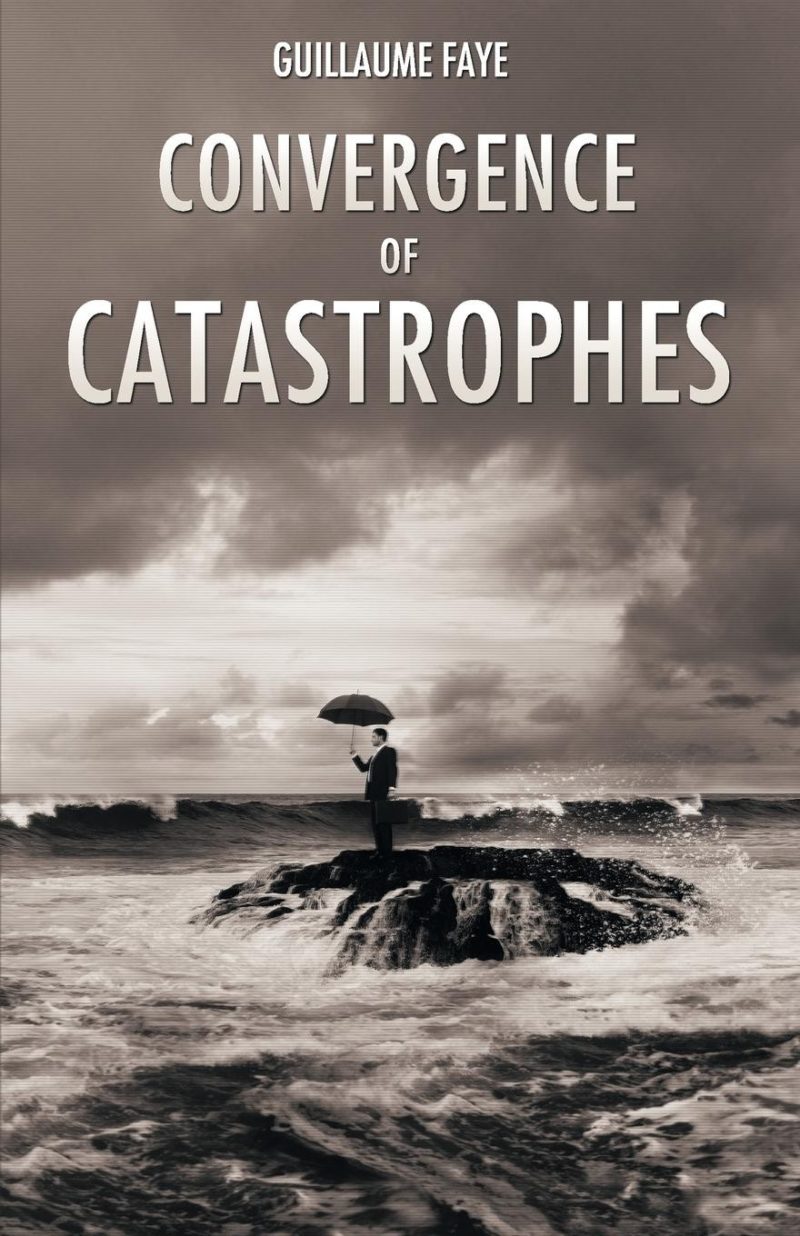


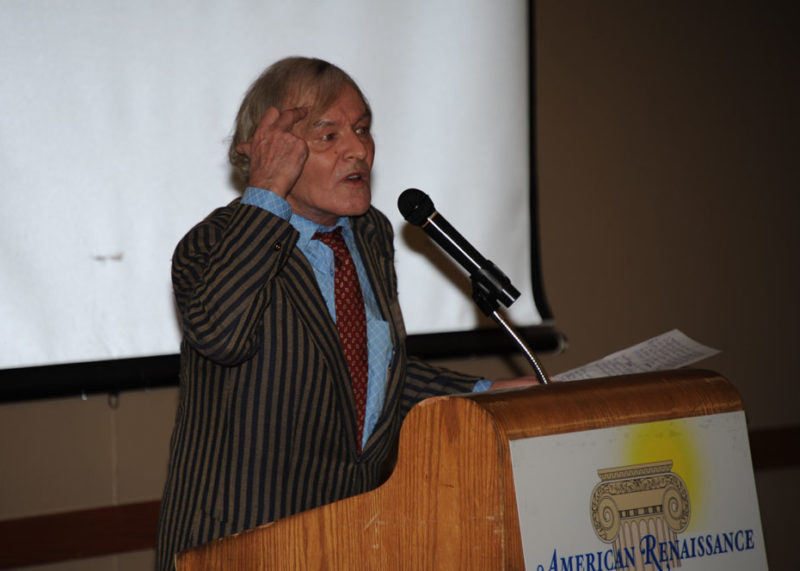
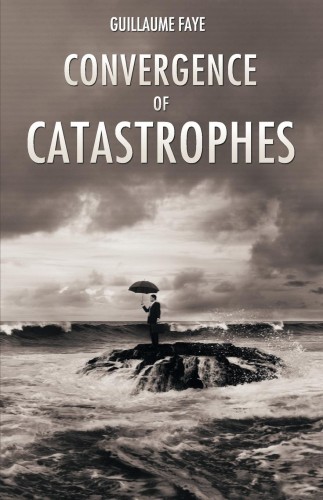 For the first time in its history, humanity is threatened by a convergence of catastrophes.
For the first time in its history, humanity is threatened by a convergence of catastrophes.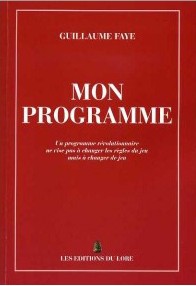 Et yndet argument mod dem, der ønsker befolkningsudskiftningen og globalismen tilbagerullet, er, at det er urealistisk eller ganske enkelt ikke kan lade sig gøre. Det har derfor stor værdi, at den franske filosof Guillaume Faye nu for sit eget lands vedkommende har skrevet et meget konkret og udførligt program for national genopretning med undertitlen: ”Et revolutionært program, der ikke skal ændre spillets regler, men ændre selve spillet.”
Et yndet argument mod dem, der ønsker befolkningsudskiftningen og globalismen tilbagerullet, er, at det er urealistisk eller ganske enkelt ikke kan lade sig gøre. Det har derfor stor værdi, at den franske filosof Guillaume Faye nu for sit eget lands vedkommende har skrevet et meget konkret og udførligt program for national genopretning med undertitlen: ”Et revolutionært program, der ikke skal ændre spillets regler, men ændre selve spillet.”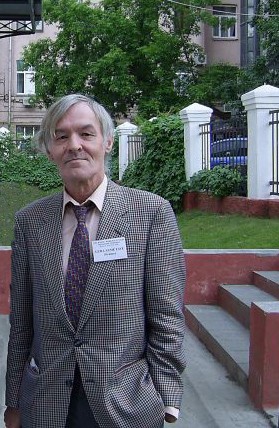 Un blog avec les articles de Guillaume Faye en espagnol:
Un blog avec les articles de Guillaume Faye en espagnol: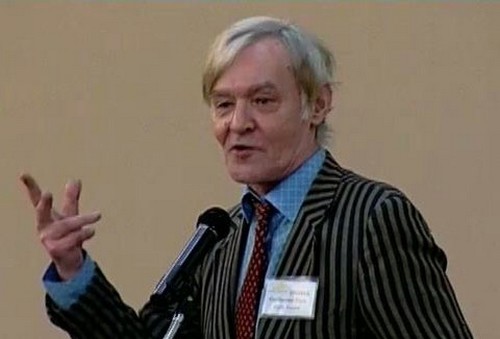





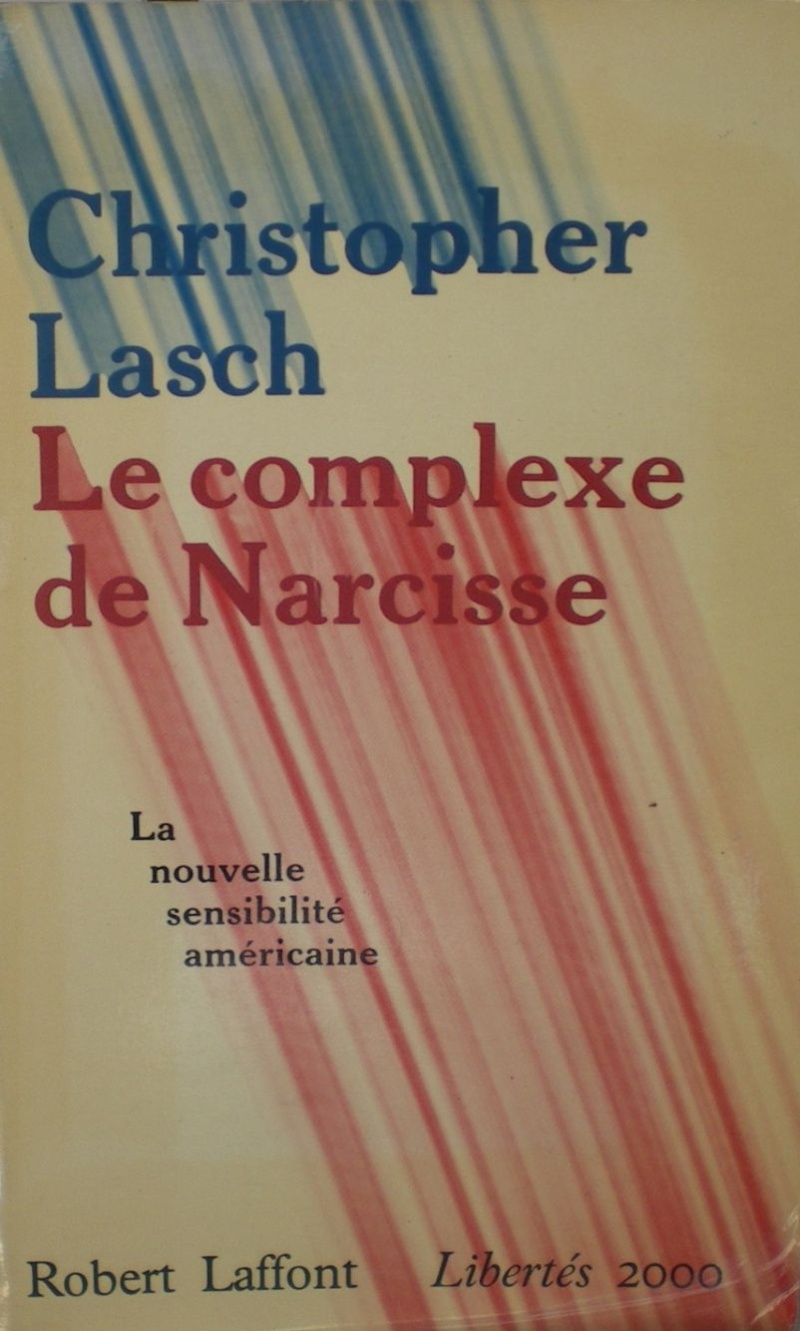

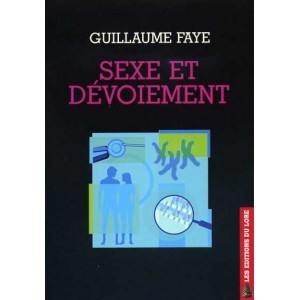
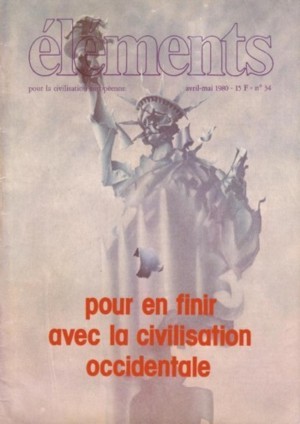 Un avvenimento considerevole si produce nel mondo contemporaneo, un avvenimento lento, silenzioso, invisibile: le culture, le civiltà, le nazioni, i paesi vengono fusi progressivamente in una struttura tiepida che trascende le divisioni destra/sinistra, est/ovest, nord/sud, che assorbe le distinzioni politiche e ideologiche, che pialla le geografie, che pietrifica la storia.
Un avvenimento considerevole si produce nel mondo contemporaneo, un avvenimento lento, silenzioso, invisibile: le culture, le civiltà, le nazioni, i paesi vengono fusi progressivamente in una struttura tiepida che trascende le divisioni destra/sinistra, est/ovest, nord/sud, che assorbe le distinzioni politiche e ideologiche, che pialla le geografie, che pietrifica la storia.

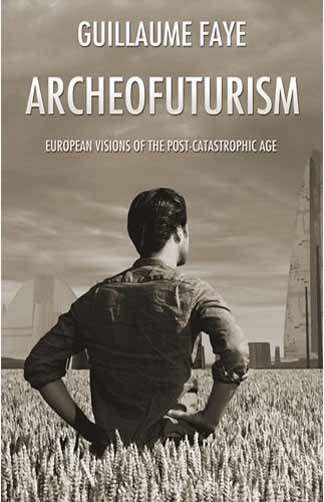


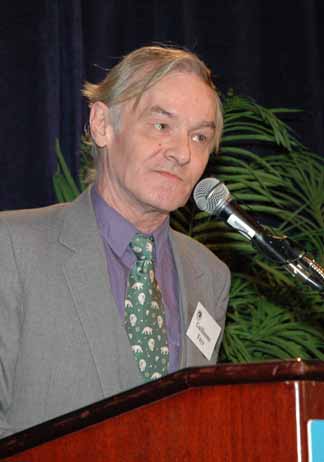

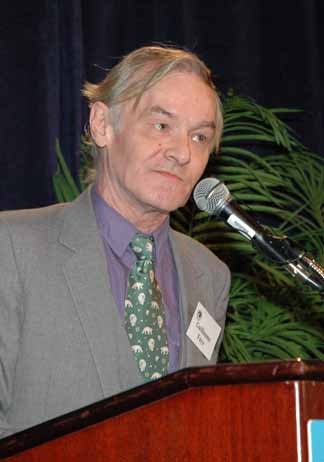 Few postwar thinkers in my view have played a greater role in ideologically resisting the forces assaulting Europe’s incomparable bioculture than Guillaume Faye. This was publicly evident at the international conference on “The White World’s Future” held in Moscow in June 2006, which he helped organize. It’s even more evident in the six books he’s written in the last seven years and in the innumerable articles, interviews, and conferences in which he’s alerted Europeans to the great challenges threatening their survival.
Few postwar thinkers in my view have played a greater role in ideologically resisting the forces assaulting Europe’s incomparable bioculture than Guillaume Faye. This was publicly evident at the international conference on “The White World’s Future” held in Moscow in June 2006, which he helped organize. It’s even more evident in the six books he’s written in the last seven years and in the innumerable articles, interviews, and conferences in which he’s alerted Europeans to the great challenges threatening their survival.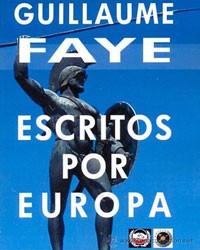 Ami de Guillaume Faye, Stefano Vaj est un jeune essayiste milanais à ses rares heures libres, que lui laisse un travail quotidien souvent fastidieux. Dans les colonnes de la revue
Ami de Guillaume Faye, Stefano Vaj est un jeune essayiste milanais à ses rares heures libres, que lui laisse un travail quotidien souvent fastidieux. Dans les colonnes de la revue 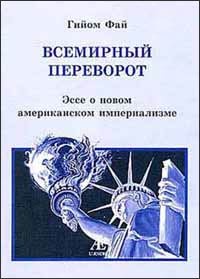 C'est une expérience commune [à tous ceux qui ont vécu la ND/Canal historique de près] de constater que, dans le terme "néo-paganisme", le préfixe "néo" en vient à être graduellement oublié, si bien qu'on voit émerger aisément l'obsession pour la "positivité" et la "légitimation".
C'est une expérience commune [à tous ceux qui ont vécu la ND/Canal historique de près] de constater que, dans le terme "néo-paganisme", le préfixe "néo" en vient à être graduellement oublié, si bien qu'on voit émerger aisément l'obsession pour la "positivité" et la "légitimation".